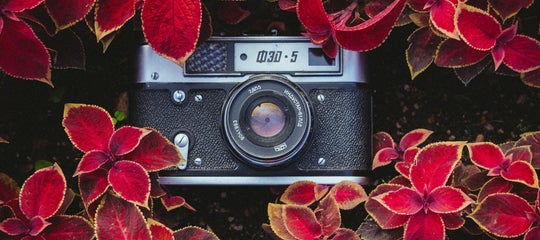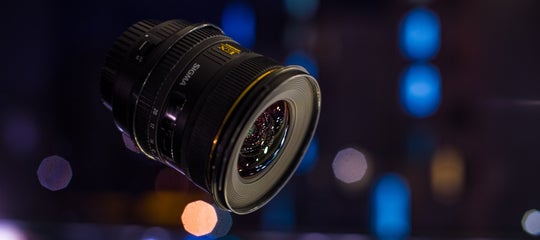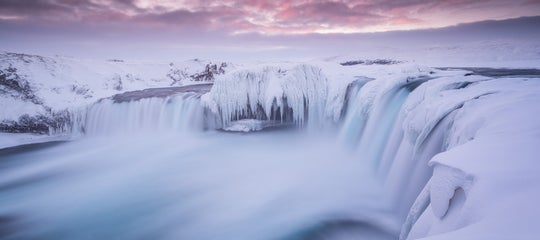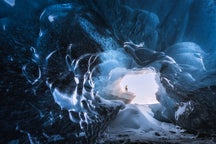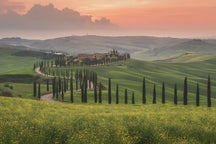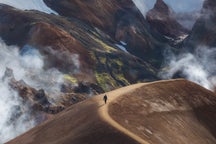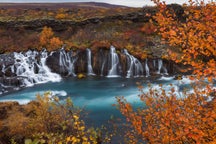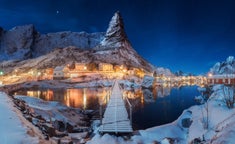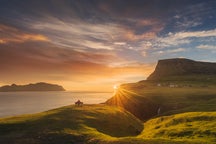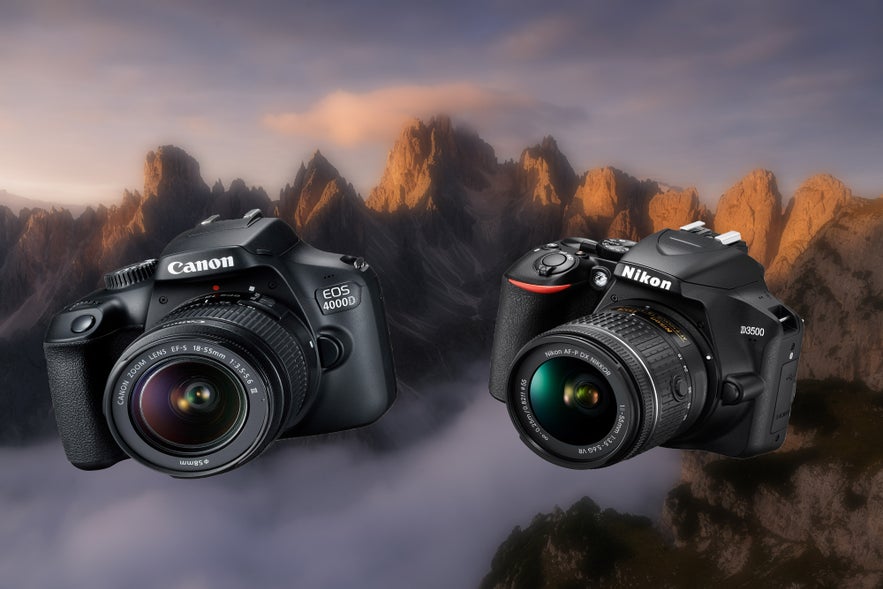
Nowadays, it can be quite overwhelming and confusing if you're in the market for a new camera, especially if you are just starting out in photography. Until a few years ago, the choices were limited to Canon and Nikon entry-level DSLRs with a standard 18-55mm kit lens.
- Check out these Camera & Gear Reviews
- Learn all about The Best Camera Bags for 2020
In 2020 though, things have gotten a little bit more complicated. Now, the first choice that you should make is whether you prefer the good ol’ reflex or the new mirrorless cameras, before you can even begin to think about which manufacturer you like the most and checking out its models. New players have arrived in the game too, such as Sony, Fujifilm and Olympus.
On the bright side though, you should also know that all of the most recent entry-level cameras have improved a lot in the last decade under every possible aspect: from the image quality to high ISO capability, camera speed to connectivity and so on. Oh, and don’t forget that by having so many models to choose from, you’ll be able to select the perfect one for your needs.
With this article, my personal aim is to help you make the right decision when you choose a camera to get started with photography. I'll give you a few tips about what the most important features are, as well as the things you should worry the most about when you are about to buy a camera. With practice and experience, you’ll be able to make some epic photos with these entry-level cameras, that’s for sure!
What is an Entry-Level Camera?
By definition, entry-level cameras are the models which come at a more reasonable price and are specifically made for people who are just approaching the world of photography. They're designed for those of us who are looking for a more user-friendly, hassle-free experience.
 An entry-level camera is a great way to get into photography. Photo by: 'Leonardo Papèra'.
An entry-level camera is a great way to get into photography. Photo by: 'Leonardo Papèra'.
Generally, entry-level cameras feature a smaller body and have an APS-C sensor; they are also optimised to auto-regulate many settings according to the weather conditions or the type of photos that you want to do, for example sports, landscapes, wildlife, street photography and so on.
The price range where you’ll find these entry-level cameras generally sitting is at around 400€-700€ ($444-$778 USD), depending on the kit lens that comes with them and the features that the body has.
Now that you know what an entry-level camera is, we can start digging into the specifics that you’ll need to look at while you are in the buying process!
What You Should Know When Buying Your First Camera
There are many factors that need to be considered when thinking about buying your first camera. How can you know though what the most important features are that you should look out for? Is Bluetooth 3.0 really that important? Is it better to check out the camera sensor and its image quality first? Are you sure that the brand you've been researching is the one you should choose in the long run? Because if you’ll start buying other lenses, it’s going to be harder to let that brand go and switch to another one later.
 Buying your first camera doesn't have to be daunting. Photo by: 'Leonardo Papèra'.
Buying your first camera doesn't have to be daunting. Photo by: 'Leonardo Papèra'.
In this chapter, we’ll try to solve these and other questions that you may have during the buying process.
Features to Look Out For
As I just mentioned in the chapter’s introduction, one of the first things you should check out is what the main features are in relation to the camera model you are looking at.
Image Quality
In my opinion, this is probably the most important feature of the camera, and the first that you should research. When looking at image quality, you need to learn about the camera sensor, how it works at high ISOs and what the dynamic range is of the camera. When looking at image quality, it's best to compare information on each camera side-by-side, so that you can see which one is the fore-runner and will serve you the best.
ISO Capability
As I mentioned in the previous point, ISOs are a really important variable when it comes to photography in general. As soon as the light is low (and trust me, you’ll find yourself shooting in low light.. everybody does!) you’ll be forced to raise the ISO. If your camera does not perform well at higher ISO ranges, then your photos will be noisy and you'll end up with poor image quality.
There shouldn’t be a huge difference gap between entry-level cameras, however, there are some that perform better in terms of ISO capability than others.
Frames per Second (FPS)
This is a number that basically stands for how fast a camera is able to shoot and record images. If that number is 3, it means that the camera will capture 3 frames per second. If it’s 4, then it will capture 4 frames per second and so on. Depending on what you’d like to shoot, this feature can be really important!
Connectivity
We are in the year 2020 and whether you like it or not, connectivity has become a crucial factor when it comes to deciding which camera will best suit our needs. Does it have WiFi connectivity or bluetooth? Can it sync to your smartphone? How does it work with mobile apps?
Nowadays, I think that pretty much all the cameras on the market have way more necessary connections than you’ll ever need, so you’ll be covered in this regard. However, if you are interested in maintaining a connection to the outer world, then be sure to give it a check before you purchase your camera!
 In this day and age, you can be connected with your camera in even the most remote of places. Photo by: 'Leonardo Papèra'.
In this day and age, you can be connected with your camera in even the most remote of places. Photo by: 'Leonardo Papèra'.
What You'll Be Using It For
This may seem like an obvious question but it's one that people often don't take into account when researching a camera. What do you actually want to do with your camera? Do you consider yourself more of an outdoor person, who may use the camera as a tool to capture the beauty of landscapes and wildlife, or are you more of a sporty person who wants to capture races and football games? Perhaps you are more into studio sessions, people and portraits?
It’s not an easy question to answer when you are just getting into the world of photography. However, you should at least have a very general idea about what you would like to shoot once you invest in your first camera.
If you are interested in capturing fast moving scenes like sports and animals, then you may need to place more importance on high ISO capability and the speed of the camera. Meanwhile, if you are interested in still scenes like landscapes or studio portraits, your focus should instead be on the best image quality.
Price
Unsurprisingly, price is one of the most important factors when you think about buying your first camera. And I get why: you don’t (and can’t) know if your passion will grow or if you’ll get bored after a while. Maybe you don’t want (or can’t) invest too much on it.
But don’t worry, you can find the cameras that I’m talking about in this article at a listing price of 400€ to 700€, depending on the model and the lens that comes with it. If this is still over your budget range, then you can check out the used camera market too. You may find some great deals there! Photography is not everybody’s first passion and many people get bored (as I was saying before), so they sell their almost-new cameras at great prices. There are lots of bargains hidden in the used camera markets!
Megapixels
I won’t spend a lot of time talking about megapixels because you really need to understand from the very beginning that megapixels aren’t important. Megapixels are just the size of the image, period. It doesn’t mean anything in terms of quality, speed, dynamic range, etc.
A lot of the beautiful photos that you may have seen in books, magazines or online could have been made with 24 megapixel or even 6 megapixel cameras, though you would never be able to tell the difference. All of the most recent entry-level cameras have more than enough megapixels for printing images, so you shouldn’t worry too much about this.
Size and Image Sensor
This is something you want to research very carefully. The image sensor is the “core” of the camera and the part of it which is actually recording the photo.
One of the first checks you should do is how wide the dynamic range is of a particular camera's sensor. The wider the dynamic range, the more details that will be maintained in the shadows when you’ll be exposing for the highlights in high-contrast situations. The ISO resistance is a factor you should consider too, as some image sensors perform slightly better than others, even in the same price range.
Lenses
This might not be important at first but if you think in the longer term, it is actually one of the most important variables to take into consideration. Check to see whether a particular camera brand has a nice list of lenses that are compatible with it. Are lenses available from other brands such as Sigma or Tamron that can work with that camera? It's a good idea to invest in a camera with a great pool of compatible lenses to choose from, particularly in the long run.
- See also: Best Lenses for Night Photography
Settings and Controls
To test the settings and controls of a camera, you'll really need to get hands-on in a shop with the cameras that you've been researching. There is not a “best camera” for settings and controls. For example, you may find it more difficult to scroll through the Canon menus while others may find it more difficult to go through the Nikon menus, and so on.
In the end, the camera should be like an extension of your arm and not just a tool, so be sure to choose the one that you have the best feeling with, since you’ll have to learn how to use all of those settings and controls eventually!
Upgrades
Don’t be shy... I know that you have the camera of your dreams, up there in your mind, somewhere. Is it the Canon 1Dx Mark III? Or maybe the Nikon D850? Or is it the Sony A7RIV?
Whatever it may be, I know that you have it. The one that you are sure will be the camera of your life.
I also know that you are not even remotely thinking about buying it (fair enough)... but what if one day, you’ll find yourself in the position of owning it? What if your passion becomes your job and you need a professional tool for it?
If you think that photography may be a long-term passion for you, then you should invest in an entry-level camera that will allow for future upgrades, in case you begin to feel limited by your options.
 Consider what kinds of upgrades you might need to make in future before investing in a camera. Photo by: 'Leonardo Papèra'.
Consider what kinds of upgrades you might need to make in future before investing in a camera. Photo by: 'Leonardo Papèra'.
Best Entry-Level Cameras for Beginners
Canon EOS M5
This is an entry-level mirrorless camera with a list price around 550€. If you want to start with mirrorless cameras, this might be one of the best options: it’s lightweight, it has great image quality and obviously comes with all the features that have made mirrorless cameras so popular these days!
 The Canon EOS M5 is an entry-level mirrorless camera. Photo by: 'Leonardo Papèra'.
The Canon EOS M5 is an entry-level mirrorless camera. Photo by: 'Leonardo Papèra'.
Canon 800D
The best all-round entry-level DSLR camera for those who are just starting out. It has plenty of features, like a great dynamic range, good image quality, weight and user-friendly menus that will give you the tools to create great images! Price tag is around 500€.
 The Canon 800D is the best all-round entry-level camera by Canon. Photo by: 'Leonardo Papèra'.
The Canon 800D is the best all-round entry-level camera by Canon. Photo by: 'Leonardo Papèra'.
Canon 4000D
If you are low on budget, then compared to the previous two on the list, this might be the best choice for you! It’s a good entry-level camera, with a recent and great-performing image sensor – perfect for learning how to shoot manual and the basics of photography.
 The Canon 4000D is a great option if you're on a tight budget. Photo by: 'Leonardo Papèra'.
The Canon 4000D is a great option if you're on a tight budget. Photo by: 'Leonardo Papèra'.
Nikon D3500
You’ll find this entry-level DSLR on the market for around 400€. It has all possible connectivity options plus a great image sensor. It's also very easy to use and perfect for learning how to master camera settings.
 The Nikon D3500 is a cheap option with great image quality. Photo by: 'Leonardo Papèra'.
The Nikon D3500 is a cheap option with great image quality. Photo by: 'Leonardo Papèra'.
Nikon D5600
If you are willing to invest a bit more on a camera, then the D5600 might be the best entry-level in Nikon’s house. It has a tilting screen, a great sensor, fast autofocus and all kinds of connection options. You’ll find it on the market for around 550€.
 The D5600 is the best entry-level camera in Nikon's range. Photo by: 'Leonardo Papèra'.
The D5600 is the best entry-level camera in Nikon's range. Photo by: 'Leonardo Papèra'.
Sony A6300
The only and most recent “entry-level” when we talk about Sony is the A6300. It is a mirrorless APS-C camera with all the features that have made Sony the world’s second leading camera manufacturer. It has a great autofocus, it produces amazing RAW files with a wide dynamic range and it has good video capabilities too, in case you are interested in making films!
 The A6300 is perhaps the only entry-level mirrorless camera by Sony. Photo by: 'Leonardo Papèra'.
The A6300 is perhaps the only entry-level mirrorless camera by Sony. Photo by: 'Leonardo Papèra'.
Fujifilm X-T100
The entry-level from Fuji is an APS-C mirrorless with a remarkable high ISO performance. It is capable of producing some superlative RAW files. It comes at a 450€ price tag.
 Fujifilm's X-T100 is an entry-level mirrorless camera with great high ISO capabilities. Photo by: 'Leonardo Papèra'.
Fujifilm's X-T100 is an entry-level mirrorless camera with great high ISO capabilities. Photo by: 'Leonardo Papèra'.
Conclusion
Choosing your first camera is always a bit confusing, since you can’t possibly know what the most important things are and most of all, you still can’t know what you’ll end up shooting most of the time until you actually get out there and start doing it.
 Doing your research before investing in a camera will definitely pay off. Photo by: 'Leonardo Papèra'.
Doing your research before investing in a camera will definitely pay off. Photo by: 'Leonardo Papèra'.
I hope I've been able to shed a little bit of light for you over the world of entry-level cameras. With a bit of research, you'll be able to wisely choose the best camera that will suit your needs.
About the author: Leonardo Papèra is a landscape photographer based in Italy. You can find more of his work on his website or by following him on Instagram.
Have you already invested in a new camera? Bring it along with you on this 8 Day Summer Photography Workshop in Iceland! Learn from the best photography guides as you travel in the Land of Fire and Ice.

